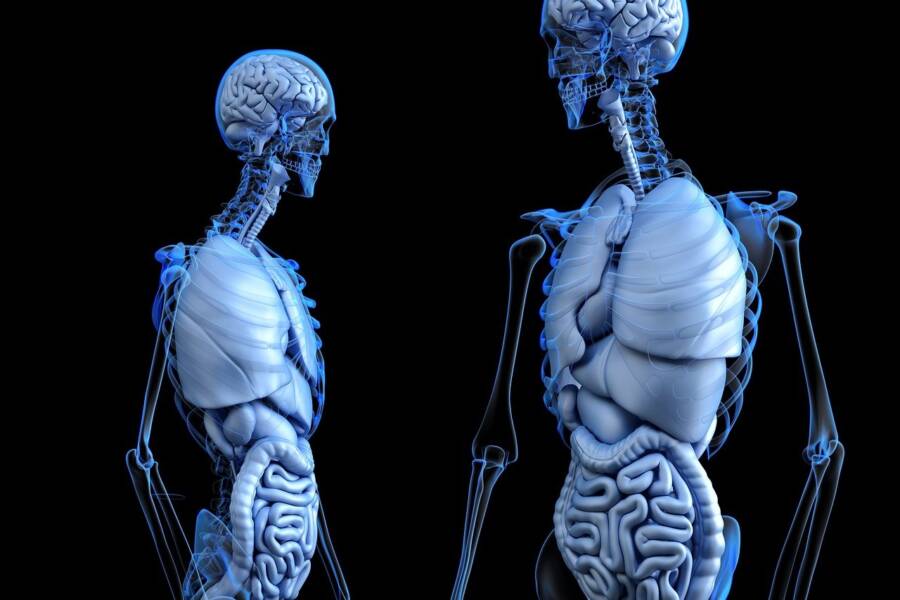There is no doubt that a healthy diet is essential to protect the gastrointestinal system and that regular exercise guarantees physical health. However, the brain also needs to be taken care of every day to prevent its gradual deterioration. To achieve this, choosing a healthy lifestyle is essential.
— The brain is a vital organ that receives and processes information from the environment that surrounds us through vision, hearing, balance, smell, taste and sensitivity. Furthermore, it is responsible for controlling movements, speech, intelligence, memory and emotions — says Alejandro Andersson, neurologist and director of the Buenos Aires Neurology Institute.
It is estimated that it consumes 25% of the oxygen that enters the body, and is also one of the organs that demands the most blood in the body, along with the heart, kidneys and lungs, explains Gabriel Lapman, cardiologist and author of the book “Más zapatillas , minus pastillas: La mejor receta para una vida saludable” (More sneakers, fewer pills: The best recipe for a healthy life, translated from Spanish).
— However, the circumstances we have to face and the environment that surrounds us condition our health and lead us to create routines that, sometimes and without realizing it, harm us — Lapman highlights.
According to a report from the United States National Institute of Health, this problem worsens when harmful habits that have been developed cause pleasure, which makes them more difficult to eradicate. The document suggests that, in order to combat them, it is important to understand how they emerged and how they affect the functioning of the body, and then leave them behind and create new practices that favor the search for quality of life.
Habits that harm the brain
The experts consulted agree that, if the brain is not properly cared for, diseases such as strokes and other conditions that weaken cognitive capacity, memory and learning can arise. Given this observation, find out below nine habits they listed that threaten the vitality of the brain:
1) Play video games all day
Stress is a trigger that, in addition to reducing mental capacity, generates anxiety and prevents connection with the present moment, experts warn. In this sense, a report from Harvard University states that chronic stress directly affects the prefrontal cortex, the area responsible for memory and learning. To address this issue, it is recommended to resort to breathing exercises, which develop calm, tranquility and the ability to think clearly.
2) Being sedentary
Regular physical activity stimulates brain function and releases hormones such as dopamine and endorphins, which generate happiness. On the other hand, a publication in the Harvard Health Publishing magazine highlights a study that links a sedentary lifestyle with changes in the area of memory. After studying the medial temporal lobe, where new memories are produced, in people between 45 and 75 years old, researchers realized that those who sat for longer had more failures in this region compared to those who exercised regularly.
After analysis, they concluded that the higher the level of sedentary lifestyle, the greater the risk of dementia and cognitive pathologies. That’s why Andersson suggests practicing any type of physical activity three to five times a week. — When someone is in good physical condition, the incidence of memory disorders is reduced by 50% — he adds.
3) Do intermittent fasting
For Lapman, although intermittent fasting is a practice that has recently become a trend, he believes there is not enough evidence that this practice is effective. — You need to give your brain energy to start the day and this is achieved with breakfast, through the intake of quality nutrients — he warns.
If this does not happen, Andersson comments that the patient will have to look for energy in another way— In these cases, the body will start using its glycogen reserve, then consume fats and then proteins. In this way, a hormonal imbalance will be generated with the possibility of developing diabetes, obesity and cholesterol — explains the specialist.
4) Eating too much sugar
Foods and drinks with excess sugar are addictive and stimulate brain activity, as they provide a feeling of well-being, suggests Lapman. — However, this is related to a pleasure trap, because its excess is also linked to the development of several chronic diseases, such as diabetes — adds Andersson.
5) Isolate yourself from social life
Research conducted by Harvard University found that loneliness and depression are linked to Alzheimer’s risk and cognitive decline. Those who are not socially active tend to lose gray matter, which is the layer of the brain that processes information, according to the study.
6) Resting poorly
Researchers at the Mayo Clinic, a non-profit organization in the United States that provides medical and scientific information, suggest that for restful sleep an adult should sleep at least seven hours a day. In this sense, Lapman highlights the importance of a good rest, as it is a time when harmful substances that accumulate in the body during the day are eliminated, a phenomenon he calls “metabolic cleansing”.
7) Drinking a lot of alcohol
Alcoholic drinks, according to Andersson, affect neurons because they damage the extensions and branches of the brain, reducing the speed at which nerve impulses are transmitted. Despite this finding, data from the Ministry of Health indicate an increase in alcohol abuse in Brazil from 18.4% to 20.8% between 2021 and 2023. Among men, the growth is even greater: the numbers indicate a growth from 25% to 27.3% in this period. Among women, the percentage varied from 12.7% to 15.2%.
8) Smoking
When a person smokes, the gray matter in the brain and the amount of oxygen that reaches it are also reduced, warns Lapman. In turn, Andersson comments that this practice generates a greater predisposition to suffer from atherosclerosis, a condition in which the walls of the arteries become obstructed and blood flow is hampered. According to him, this makes the person prone to suffering a lack of energy, which can also lead to difficulties in learning and understanding.
9) Eating ultra-processed foods
A diet based on saturated fats and ultra-processed foods, experts say, also clogs the arteries and generates physical and mental discomfort. — Although in the beginning, ingesting these products may generate pleasure, over time guilt and regret appear — comments Lapman.
He suggests that his patients opt for foods with high nutritional value, which contain vitamins, minerals, healthy fats and, above all, proteins, made up of several essential amino acids that contribute to the formation of tissues. In this sense, he recommends that the consumption of nuts and red fruits, fish, avocado and all types of fruits and vegetables be prioritized.
To leave behind unhealthy habits, the National Institute of Health recommends eliminating situations and objects that may cause temptation, such as cigarettes, alcoholic beverages or harmful foods. In this sense, experts also encourage people to dedicate themselves to hobbies and activities of personal interest and to work on their ability to say “no” when they no longer want something in their lives.
TechnologyHQ is a platform about business insights, tech, 4IR, digital transformation, AI, Blockchain, Cybersecurity, and social media for businesses.
We manage social media groups with more than 200,000 members with almost 100% engagement.













































